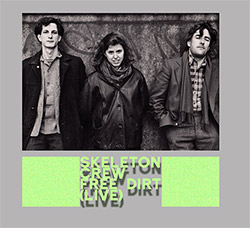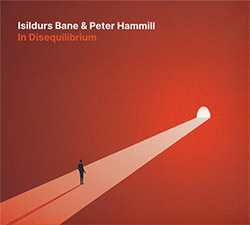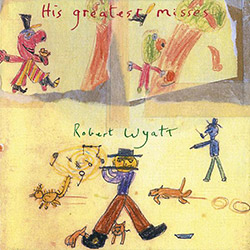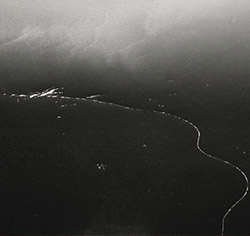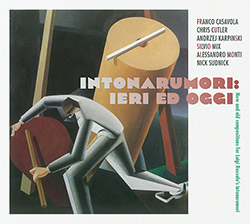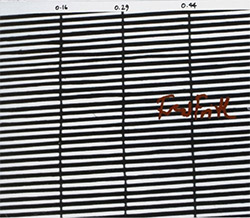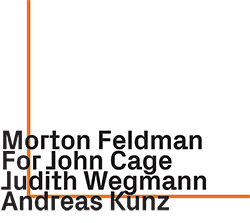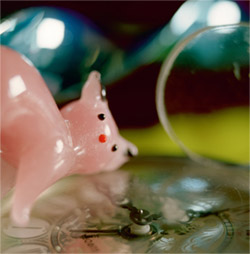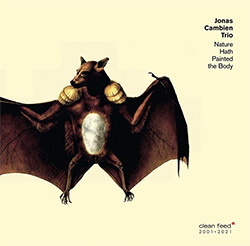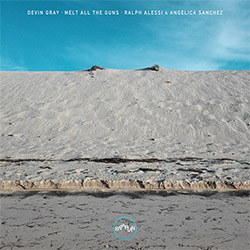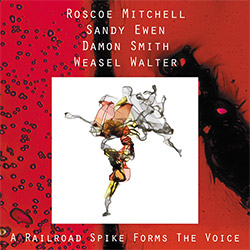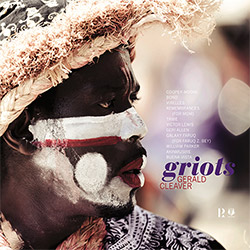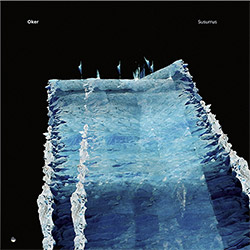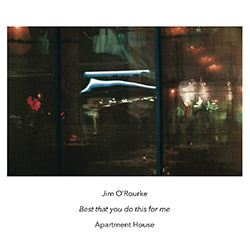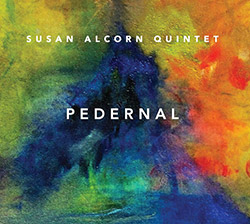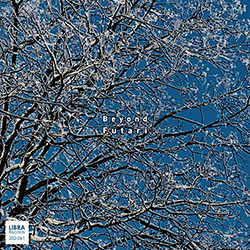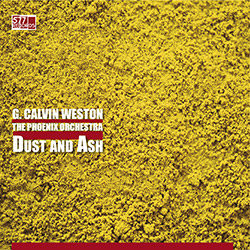![News From Babel: Letters Home [VINYL] (ReR Vinyl) News From Babel: Letters Home [VINYL] (ReR Vinyl)](https://www.teuthida.com/productImages/misc4/29780.jpg)
Originally issued on vinly LP in 1986 and at last reissued on vinyl, this incredible band emerged post-Henry Cow, initiated by alumni Chris Cutler (drums) and Lindsay Cooper (reeds), plus bassist Bill Gilonis, Zeena Parkins on harp, and four outstanding vocalists taking on Chris Cutler's insightful texts: Phil Minton, Dagmar Krause, Sally Potter, and Robert Wyatt.
Out of Stock
Quantity in Basket: None
Log In to use our Wish List
Shipping Weight: 24.00 units
Sample The Album:
Bill Gilonis-bass, guitar
Lindsay Cooper-bassoon, alto saxophone, sopranino saxophone, piano, keyboards
Chris Cutler-drums, percussion
Zeena Parkins-harp, accordion
Dagmar Krause-vocals
Phil Minton-vocals
Robert Wyatt-vocals
Sally Potter-vocals
Click an artist name above to see in-stock items for that artist.
Contains printed inner sleeve with full texts, photos and illustrations.
UPC: 8033706214114
Label: ReR Vinyl
Catalog ID: RER NFB2
Squidco Product Code: 29780
Format: LP
Condition: New
Released: 2021
Country: Italy
Packaging: LP
Recorded at Cold Storage, in Brixton, UK, Autumn and Winter, 1985 and 1986, by Bill Gilonis. Originally released on vinyl LP in 1986 on the Recommended Records label as catalog code Rē 1··14.
Contains printed inner sleeve with full texts, photos and illustrations.
Artist Biographies
• Show Bio for Bill Gilonis "Bill Gilonis (born 1958) is an English guitarist and composer. He co-founded the gritty experimental rock group The Work in 1980 with Tim Hodgkinson. The group was active intermittently until 1993, recording four albums and touring extensively, including in Russia, Japan, Finland, Yugoslavia and Switzerland. Gilonis has also worked as a producer, sound engineer and/or musician with (among others): Robert Wyatt, News from Babel (Chris Cutler, Lindsay Cooper, Zeena Parkins, Dagmar Krause), David Thomas, Peter Blegvad, Ut, Lindsay Cooper Film Music Group, Hail and The Hat Shoes (with Catherine Jauniaux, Tom Cora, Charles Hayward, and others). Other projects include: writing and recording the music for Frida Béraud's one-woman theatre piece, Aus den Haaren gezogen; a collaboration with Anja Burse on Wild Thing, an audio-visual installation piece; and a multi-media piece for the Val de Travers exhibition about Absinthe in Neuchatel, Switzerland (with Luigi Archetti, Jeroen Visser and Julien Baillod). He has been living in Zurich since 1993 where he has mixed and/or produced CDs by Swiss bands such as No Secrets in the Family, The Jellyfish Kiss and Lödig. His most recent recordings have been Zürich-Bamberg (Ad Hoc, 2008), a CD of electroacoustic compositions (together with Canadian composer Chantale Laplante), and Calvary Greetings by the Anglo-Dutch-American band Stepmother (with Lukas Simonis, Jeroen Visser and Dave Kerman) - a reunion of an 80s band that never existed (but should have): twangy guitars, nifty keyboards, zany drumming, vocal histrionics à la The Rutles (well, sort of), lop-sided rhythms, regurgitated spam lyrics. In 2009, together with Alex Julyan, he published a book "Lost in Translation", on Lost & Found Publishing." ^ Hide Bio for Bill Gilonis • Show Bio for Lindsay Cooper "Lindsay Cooper (3 March 1951 Ð 18 September 2013) was an English bassoon and oboe player, composer and political activist. Best known for her work with the band Henry Cow, she was also a member of Comus, National Health, News from Babel and David Thomas and the Pedestrians. She collaborated with a number of musicians, including Chris Cutler and Sally Potter, and co-founded the Feminist Improvising Group. She wrote scores for film and TV and a song cycle Oh Moscow which was performed live around the world in 1987. She also recorded a number of solo albums, including Rags (1980), The Gold Diggers (1983) and Music For Other Occasions (1986). Cooper was diagnosed with multiple sclerosis in the late 1970s, but did not disclose it to the musical community until the late 1990s when her illness prevented her from performing live. In September 2013, Cooper died from the illness at the age of 62, 15 years after her retirement." ^ Hide Bio for Lindsay Cooper • Show Bio for Chris Cutler "Chris Cutler started messing about with banjo, guitar and trumpet at school, settling for drums and playing shadows and other instrumental covers in his first band in 1963. Subsequently he played in R'n'B and Soul Bands, winding up in 1967 playing in London's psychedelic clubs. At the start of the seventies, with Dave Stewart, he co-founded The Ottawa Music Co, a 22 piece Rock composer's orchestra, eventually joining British experimental group Henry Cow with whom he toured, recorded and worked in dance and theatre projects until it's demise in 1978. In 1977 Henry Cow, The Mike Westbrook Orchestra and Frankie Armstrong formed a big-band and toured around Europe. After Henry Cow, Cutler went on to co-found a series of mixed national groups Art Bears, News from Babel, Cassiber, The (ec) Nudes, P53 and The Science Group. He was a permanent member of American bands Pere Ubu, Hail and The Wooden Birds and now works sporadically with John Rose, Fred Frith, Zeena Parkins, Iancu Dumitrescu, Peter Blegvad and Stevan Tickmayer. Other lasting collaborations have included Aqsak Maboul (Belgium), Lussier/Derome and Les Quatre Guitaristes (Canada), The Kalahari Surfers (Africa), Perfect Trouble (Germany), Between (Sweden), N.O.R.M.A., (Italy), Telectu (Portugal), Mieku Shimuzu (Japan),The Hyperion Ensemble (Romania), The Film Music Orchestra, 'Oh Moscow', Gong, The Work and Towering Inferno (UK), The Residents (USA), and stateless Tense Serenity and Mirror Man. There have also been countless improvisational groupings and solo performances. Recent projects include Radio pieces with Lutz Glandien and Shelly Hirsch, Live Soundtrack for Carl Dreher's Vampyr (with Italians Musci and Venosta), his Timescales project and work with David Thomas and Linda Thompson. He also founded and runs the independent label and distribution service ReR/Recommended and, until 1991, the East European specialist label Points East. He is editor of the New Music magazine Unfiled and author of the theoretical book File Under Popular as well as of numerous articles and papers published in 14 languages. He lectures intermittently on theoretical and music related topics. He has appeared on more than 100 recordings." ^ Hide Bio for Chris Cutler • Show Bio for Zeena Parkins "Multi-instrumentalist/composer/improviser, Zeena Parkins, pioneer of contemporary harp practice and performance, reimagines the instrument as a "sound machine of limitless capacity." Parkins has built three versions of her one-of-a-kind electric harp and has extended the language of the acoustic harp with the inventive use of unusual playing techniques, preparations, and layers of electronic processing. Inspired and connected to visual arts, dance, film, and history, Zeena follows a unique path in creating her compositional works. Through blending and morphing of both real and imagined instruments, crafting, recombining, and layering mangled, sliced, massaged or possibly disengaged sounds, drawing from extra-musical sources for unusual scoring and formal constructions as well as utilizing multi-speaker environments, Zeena remains in process with sound as material and music, engaged in translations of sonic states in the concert hall, the black box theater, the dance studio, the recording studio, the classroom, the cinema, the skyscraper, the ocean and the gallery. Zeena has a particularly strong commitment to making scores for dance and continues to re-evaluate the nature and issues of the body's imprint on sound and sound/music's imprint on movement. Parkins's compositions have been commissioned by NeXtWorks Ensemble, Merce Cunningham Dance Company, Roulette Intermedium, The Eclipse Quartet, William Winant, Bang on a Can, The Whitney Museum, The Tate Modern, Montalvo Arts Center, The Donaueschinger Musiktage and Sudwestrundfunk/SWR. Parkins has released four solo records featuring her electric and acoustic harp playing and has released her compositions and band projects on six Tzadik recordings, with a new Tzadik CD with Ikue Mori and Phantom Orchard Orchestra, Trouble in Paradise, to be released in November 2012. As a sought-after collaborator Zeena has worked with: Fred Frith, Björk, Ikue Mori, Dame Evelyn Glennie, Maja Ratkje, Hild Sofie Tafjord, John Zorn, Butch Morris, Chris Cutler, Elliott Sharp, Nels Cline, Alex Cline, William Winant, Anthony Braxton, Pauline Oliveros, Yoko Ono, Christian Marclay, Matmos, Yasunao Tone, So Percussion, Bobby Previte, Carla Kilhstedt, Tin Hat, James Fei, Kim Gordon, Lee Renaldo and Thurston Moore. Awards: The Foundation for Contemporary Arts Fellowship, NYFA Music Fellowship, Meet the Composer Commission, NYSCA Composer Commission, Multi-Arts Production Fund Grant, American Music Center, BAFTA award for best interactive media with visual artist Mandy McIntosh and sound artist Kaffe Matthews, Peter S. Reed Fellowship, Mary Flagler Cary Charitable Trust Commissions, Arts International, Prix Ars Electronica Honorary Mention for Phantom Orchard in the Digital Music category. Curatorial: Guest curator for The Music Unlimited Festival in Wels, Austria, co-curator of the Movement Research Festival: Sidewinder, in NYC and curator for a month + a week of shows at The Stone in NYC Residencies: Civitella Ranieri Foundation Fellowship, Oxford University, Harvestworks, Steim, Paf: Performing Arts Forum, Wooda Arts Residency, Montalvo Arts Center, RPI/iEAR and The Watermill Center. Teaching: Zeena has given lectures at Oxford and Princeton Universities and has taught at the School of the Museum of Fine Arts in Boston, Bard and Mills College. Currently, Zeena is a Distinguished Visiting Professor, at Mills College Graduate Music Department." ^ Hide Bio for Zeena Parkins • Show Bio for Dagmar Krause "Dagmar Krause (born 4 June 1950) is a German singer, best known for her work with avant-rock groups including Slapp Happy, Henry Cow, and Art Bears. She is also noted for her coverage of songs by Bertolt Brecht, Kurt Weill and Hanns Eisler. Her unusual singing style makes her voice instantly recognisable and has defined the sound of many of the bands with whom she has worked. Dagmar Krause was born in Hamburg, Germany on 4 June 1950. She began her professional career at the age of 14 as a singer in Hamburg clubs on the Reeperbahn. In 1968 she was invited to join the City Preachers (de), a contemporary folk/protest she once half-jokingly described as a German version of The Mamas & the Papas. She contributed vocals to their 1968 album Der Kürbis, das Transportproblem und die Traumtänzer (The Pumpkin, the Problem of Transport and the Dream-dancers), a spin-off from a German TV show. The City Preachers broke up in 1969, but their lead singer Inga Rumpf and Krause reunited in 1970 to record I.D. Company, the name of a studio project where each vocalist sung lead on and determined the direction of one side of the LP (Krause's side indicated her future direction with its avant-garde slant). Hamburg had a thriving avant-garde scene that attracted numerous European musicians interested in pursuing aesthetic freedom and experimental music. It was here that Krause met, and later married, British experimental composer Anthony Moore. In 1972, Moore, Krause and Moore's visiting American friend, singer-songwriter Peter Blegvad formed Slapp Happy, a self-described "naive rock" group which mixed simple pop structures with obfuscatory lyrics drawing equally from semiotic and symbolist traditions. Slapp Happy was the beginning of Krause's international musical career. They recorded two albums in Germany for Polydor with Faust as their backing band, Sort Of (1972) and what subsequently became known as Acnalbasac Noom (not released at the time). Then they moved to London where they recorded a new arrangement of Acnalbasac Noom for Virgin Records, released as Slapp Happy, also known as Casablanca Moon (1974). The original Acnalbasac Noom only saw the light of day in 1980 when it was released by Recommended Records. In 1974, Slapp Happy merged with Virgin label-mates Henry Cow, a politically oriented avant-rock group, and they made two albums, Desperate Straights (1974) and In Praise of Learning (1975). But differences in approach caused Anthony Moore and Peter Blegvad to withdraw Slapp Happy from the merger. Krause, however, elected to remain with Henry Cow and that spelt the end of Slapp Happy. Krause's singing added a new dimension to Henry Cow's repertoire and their tricky time signatures enhanced her vocal powers. Henry Cow toured Europe for two years, during which time they released a live album Concerts (1976) which included Krause singing duos with Robert Wyatt. But in May 1976 she was forced to withdraw from Henry Cow's hectic tour schedule due to ill health and returned to Hamburg. In October 1977, still unable to tour she left Henry Cow, but agreed to sing on their next studio album Hopes and Fears. Hopes and Fears began in 1978 as a Henry Cow album but differences of opinion in the group about its content resulted in it being credited to Art Bears, a new band consisting of Krause, Chris Cutler and Fred Frith. Art Bears went on to make two more albums of songs, Winter Songs (1979) and The World as It Is Today (1981). In 1979, she collaborated with Kevin Coyne on the album Babble, released on the Virgin Records label. The work courted controversy when Coyne suggested, in the theatre presentation of the piece, that the destructive relationship between the two lovers could have been based on The Moors Murderers. Two performances at the Theatre Royal Stratford East in London were cancelled at short notice by Newham Council following negative press reports in The Sun and The Evening Standard. The show was eventually staged, for four nights, at Oval House in Kennington. Reviewing the show for the NME, Paul Du Noyer wrote:" Babble is a particularly thorough, painstaking exploration of the reality of one relationship, stripped of romance and artifice. The format employed is correspondingly stark. Against a stage-set of light-bulb, table and chairs Coyne and his partner Dagmar Krause stand at either side; the only accompaniment comes from Bob Ward and Brian Godding, playing electric and acoustic guitar in the gloom behind. " In 1983, Krause joined a new band News from Babel, featuring core members Krause, Chris Cutler, Lindsay Cooper and Zeena Parkins. They recorded two albums Work Resumed on the Tower (1984) and Letters Home (1985). After News from Babel, Krause was involved in a number of projects and collaborations. She performed on the Michael Nyman/Paul Richards art song, "The Kiss" with Omar Ebrahim on the Michael Nyman Band album The Kiss and Other Movements (1985). She also featured on Music for Other Occasions (1986) with Lindsay Cooper, Domestic Stories (1992) with Chris Cutler and Lutz Glandien, Each in Our Own Thoughts (1994) with Tim Hodgkinson, and A Scientific Dream and a French Kiss (1998) with Marie Goyette. In 1984, Dagmar sang backing vocals on "Here & There" by The Stranglers. The song appeared on the b-side of their single, "Skin Deep". It was subsequently added to the 2001 remastered edition of the parent album, Aural Sculpture. In 1991, Dagmar Krause, Anthony Moore and Peter Blegvad reunited to work on a "Camera" (Italian for "Room") a specially written television opera, made by the UK production company After Image and commissioned by Channel 4 Television. It was based on an original idea by Krause, with words by Peter Blegvad and music by Anthony Moore. Krause played the lead character "Melusina" and the opera was broadcast two years later on Channel 4. Slapp Happy reformed briefly in 1997 to record Ça Va and they toured Japan in 2000. In 2010, Krause joined Comicoperando, a tribute to the music of Robert Wyatt whose line-up has included Richard Sinclair, Annie Whitehead, Gilad Atzmon, Alex Maguire, Chris Cutler, John Edwards, Michel Delville, Karen Mantler and Cristiano Calcagnile.Solo work Dagmar Krause's fascination with Weimar-era cabaret and her love for the work of playwright Bertolt Brecht and his musical collaborators Kurt Weill and Hanns Eisler produced some of her most satisfying work. In 1978 she starred in a London art-theatre production of the Brecht and Weill play Rise and Fall of the City of Mahagonny, and in 1985 she sang Brecht and Weill's "Surabaya Johnny" on the Hal Willner-produced Lost in the Stars: The Music of Kurt Weill. John Dougan wrote at AllMusic that Krause's "elegant alto was perfectly suited to the emotionally and politically charged music of Brecht and Weill". In 1986, Krause made two solo albums: Supply and Demand: Songs by Brecht/Weill and Eisler and Tank Battles: The Songs of Hanns Eisler. These albums were also sung in German and released as Angebot und Nachfrage and Panzerschlacht: Die Lieder von Hanns Eisler. Lyrically they continued the trend of earlier songs of social conscience Krause had performed, for example on Henry Cow's "Living in the Heart of the Beast". Supply and Demand and Tank Battles are seen by many as Krause's best work, while the latter is considered to be one of the finest interpretations of Eisler's work. She performed selections from these albums live at various venues, most notably the Edinburgh Festival, which was documented on Voiceprint Radio Sessions (1993).Singing style As a vocalist, Dagmar Krause is considered an acquired taste. Her singing style is highly original and idiosyncratic. Her "husky, vibrato-laden alto" voice can range from a sweet melodious croon to the love-it-or-hate-it Armageddon style typified on albums like Henry Cow's In Praise of Learning. Part of the intrigue of Krause's singing are her German-inflected vocals, "... but whether she sings in German or English (which she often does on the same record), she retains her impeccable phrasing and ability to inject the most oft-heard lyric with almost palpable emotion." In a review of The 40th Anniversary Henry Cow Box Set (2009), critic John Kelman at All About Jazz, wrote that "the kinds of intervallic leaps and harmonic sophistication required of a singer [in Henry Cow] make Krause an undervalued and underrated singer in this history of modern music." " ^ Hide Bio for Dagmar Krause • Show Bio for Phil Minton "Phil Minton comes from Torquay. He played trumpet and sang with the Mike Westbrook Band in the early 60s- Then in dance and rock bands in Europe for the later of part of the decade. He returned to England in 1971, rejoining Westbrook and was involved in many of his projects until the mid 1980's. For most of the last forty years, Minton has been working as a improvising singer in lots of groups, orchestras, and situations, all over the place. Numerous composers have written music especially for his extended vocal techniques. He has a quartet with Veryan Weston, Roger Turner and John Butcher, and ongoing duos, trios and quartets with above and many other musicians. Since the eighties, His Feral Choir, where he voice-conducts workshops and concerts for anyone who wants to sing, has performed in over twenty countries." ^ Hide Bio for Phil Minton • Show Bio for Robert Wyatt "Robert Wyatt (born Robert Wyatt-Ellidge, 28 January 1945) is an English musician, and founding member of the influential Canterbury scene band Soft Machine, with a long and distinguished solo career. He is married to English painter and songwriter Alfreda Benge. Wyatt was born in Bristol. His mother was Honor Wyatt, a journalist with the BBC, and his father, George Ellidge, was an industrial psychologist. Wyatt had two half-brothers from his parents' previous marriages, Honor Wyatt's son, actor Julian Glover, and George Ellidge's son, press photographer Mark Ellidge. His parents' friends were "quite bohemian", and his upbringing was "unconventional". Wyatt said "It seemed perfectly normal to me. My father didn't join us until I was six, and he died ten years later, having retired early with multiple sclerosis, so I was brought up a lot by women." Wyatt attended the Simon Langton Grammar School for Boys, Canterbury and as a teenager lived with his parents in Lydden near Dover, where he was taught drums by visiting American jazz drummer George Neidorf. It was during this period that Wyatt met and became friends with expatriate Australian musician Daevid Allen, who rented a room in Wyatt's family home. In 1962, Wyatt and Neidorf moved to Majorca, living near the poet Robert Graves. The following year, Wyatt returned to England and joined the Daevid Allen Trio with Allen and Hugh Hopper. Allen subsequently left for France, and Wyatt and Hopper formed the Wilde Flowers, with Kevin Ayers, Richard Sinclair and Brian Hopper. Wyatt was initially the drummer in the Wilde Flowers, but following the departure of Ayers, he also became lead singer. In 1966, the Wilde Flowers disintegrated, and Wyatt, along with Mike Ratledge, was invited to join Soft Machine by Kevin Ayers and Daevid Allen. Wyatt both drummed and shared vocals with Ayers, an unusual combination for a stage rock band. In 1970, after chaotic touring, three albums and increasing internal conflicts in Soft Machine, Wyatt released his first solo album, The End of an Ear, which combined his vocal and multi-instrumental talents with tape effects. A year later, Wyatt left Soft Machine and, besides participating in the fusion bigband Centipede and drumming at the JazzFest Berlin's New Violin Summit, a live concert with violinists Jean-Luc Ponty, Don "Sugarcane" Harris, Michał Urbaniak and Nipso Brantner, guitarist Terje Rypdal, keyboardist Wolfgang Dauner and bassist Neville Whitehead, formed his own band Matching Mole (a pun, "machine molle" being French for 'Soft Machine'), a largely instrumental outfit that recorded two albums. In 1966, the Wilde Flowers disintegrated, and Wyatt, along with Mike Ratledge, was invited to join Soft Machine by Kevin Ayers and Daevid Allen. Wyatt both drummed and shared vocals with Ayers, an unusual combination for a stage rock band. In 1970, after chaotic touring, three albums and increasing internal conflicts in Soft Machine, Wyatt released his first solo album, The End of an Ear, which combined his vocal and multi-instrumental talents with tape effects. A year later, Wyatt left Soft Machine and, besides participating in the fusion bigband Centipede and drumming at the JazzFest Berlin's New Violin Summit, a live concert with violinists Jean-Luc Ponty, Don "Sugarcane" Harris, Michał Urbaniak and Nipso Brantner, guitarist Terje Rypdal, keyboardist Wolfgang Dauner and bassist Neville Whitehead, formed his own band Matching Mole (a pun, "machine molle" being French for 'Soft Machine'), a largely instrumental outfit that recorded two albums. The injury led Wyatt to abandon the Matching Mole project, and his rock drumming (though he would continue to play drums and percussion in more of a "jazz" fashion, without the use of his feet). He promptly embarked on a solo career, and with musician friends (including Mike Oldfield, Ivor Cutler and Henry Cow guitarist Fred Frith) released his solo album Rock Bottom on 26 July 1974. The album, the title of which was an oblique reference to his paraplegia, was largely composed prior to Wyatt's accident. The album was met with mostly positive reviews. Two months later Wyatt put out a single, a cover version of "I'm a Believer", which hit number 29 in the UK chart. Both were produced by Pink Floyd drummer Nick Mason. There were strong arguments with the producer of Top of the Pops surrounding Wyatt's performance of "I'm a Believer," on the grounds that his use of a wheelchair 'was not suitable for family viewing', the producer wanting Wyatt to appear on a normal chair. Wyatt won the day and 'lost his rag but not the wheelchair'. A contemporary issue of New Musical Express featured the band (a stand-in acting for Mason), all in wheelchairs, on its cover. Wyatt subsequently sang lead vocals on Mason's first solo album Fictitious Sports in 1981 (with songwriting credits going to Carla Bley). His follow-up single, a reggae ballad remake of Chris Andrews's hit "Yesterday Man", again produced by Mason, was eventually given a low-key release, "the boss at Virgin claiming that single was 'lugubrious', the delay and lack of promotion denting Wyatt's chances of a follow-up hit." Wyatt's next solo album, Ruth Is Stranger Than Richard (1975), produced by Wyatt apart from one track produced by Mason, was more jazz-led, with free jazz influences. Guest musicians included Brian Eno on guitar, synthesizer and "direct inject anti-jazz ray gun". Wyatt went on to appear on the fifth release of Eno's Obscure Records label, Jan Steele/John Cage: Voices and Instruments (1976), singing two Cage songs. Throughout the rest of the 1970s Wyatt guested with various acts, including Henry Cow (documented on their Concerts album), Hatfield and the North, Carla Bley, Eno, Michael Mantler, and Roxy Music guitarist Phil Manzanera, contributing lead vocals to lead track "Frontera", from Manzanera's 1975 solo debut Diamond Head. In 1976 he was featured vocalist on Michael Mantler's settings of the poems of Edward Gorey, appearing alongside Terje Rypdal (guitar) Carla Bley (piano, clavinet, synthesizer), Steve Swallow (bass) and Jack DeJohnette (drums) on the album 'The Hapless Child and Other Stories'. His solo work during the early 1980s was increasingly politicised, and Wyatt became a member of the Communist Party of Great Britain. In 1983, his original version of Elvis Costello and Clive Langer's Falklands War-inspired song "Shipbuilding", which followed a series of political cover-versions (collected as Nothing Can Stop Us), reached number 35 in the UK Singles Chart and number 2 in John Peel's Festive Fifty for tracks from that year. In 1984 Wyatt provided guest vocals, along with Tracey Thorn and Claudia Figueroa, on "Venceremos" (We Will Win), a song expressing political solidarity with Chilean people suffering under Pinochet's military dictatorship, released as a single by UK soul-jazz dance band Working Week, also included on an album released the following year. In 1985 Wyatt released Old Rottenhat, his first album of original songs since Rock Bottom. The album featured strongly political songs with relatively sparse arrangements played largely by Wyatt alone. In the late 1980s, after collaborations with other acts such as News from Babel, Scritti Politti, and Japanese recording artist Ryuichi Sakamoto, he and his wife Alfreda Benge spent a sabbatical in Spain, before returning in 1991 with a comeback album Dondestan. His 1997 album Shleep was also praised. In 1999 he collaborated with the Italian singer Cristina Donà on her second album Nido. In the summer of 2000 her first EP Goccia was released and Wyatt made an appearance in the video of the title track. Wyatt contributed "Masters of the Field", as well as "The Highest Gander", "La Forêt Rouge" and "Hors Champ" to the soundtrack of the 2001 film Winged Migration. He can be seen in the DVD's Special Features section, and is praised by the film's composer Bruno Coulais as being a big influence in his younger days. [...]" ^ Hide Bio for Robert Wyatt • Show Bio for Sally Potter "Sally Potter made her first 8mm film aged fourteen. She has since written and directed nine feature films, as well as many short films (including THRILLER and PLAY) and a television series, and has directed opera (Carmen for the ENO in 2007) and other live work. Her background is in choreography, music, performance art and experimental film. ORLANDO (1992), Sally Potter's bold adaptation of Virginia Woolf's classic novel, first brought her work to a wider audience. It was followed by THE TANGO LESSON (1996), THE MAN WHO CRIED (2000), YES (2004), RAGE (2009) and GINGER & ROSA (2012),and THE PARTY (2017). Her latest film, THE ROADS NOT TAKEN premiered at Berlin Film Festival in 2020. Sally Potter is known for innovative form and risk-taking subject matter and has worked with many of the most notable cinema actors of our time. Sally Potter's films have won over forty international awards and received both Academy Award and BAFTA nominations. She has had full career retrospectives of her film and video work at the BFI Southbank, London, MoMA, New York, and the Cinematheque, Madrid. She was awarded an OBE in 2012. Her book Naked Cinema - Working with Actors was published by Faber & Faber in March, 2014. Sally Potter co-founded her production company Adventure Pictures with producer Christopher Sheppard." ^ Hide Bio for Sally Potter
4/22/2024
Have a better biography or biography source? Please Contact Us so that we can update this biography.
4/22/2024
Have a better biography or biography source? Please Contact Us so that we can update this biography.
4/22/2024
Have a better biography or biography source? Please Contact Us so that we can update this biography.
4/22/2024
Have a better biography or biography source? Please Contact Us so that we can update this biography.
4/22/2024
Have a better biography or biography source? Please Contact Us so that we can update this biography.
4/22/2024
Have a better biography or biography source? Please Contact Us so that we can update this biography.
4/22/2024
Have a better biography or biography source? Please Contact Us so that we can update this biography.
4/22/2024
Have a better biography or biography source? Please Contact Us so that we can update this biography.
Track Listing:
SIDE A
1. Who Will Accuse? 2:38
2. Heart of Stone 3:03
3. Banknote 3:18
4. Moss 3:59
5. Dragon at the Core 4:37
SIDE B
1. Dark Matter 4:19
2. Waited/Justice 5:07
3. Fast Food 3:11
4. Late Evening 4:59
Vinyl Recordings
Rock and Related
Progressive Rock
RIO (Rock in Opposition)
Improvised Rock
Improvised Music
Song Based Music
London & UK Improv & Related Scenes
Cutler, Chris
Wyatt, Robert
Parkins, Zeena
Octet Recordings
Staff Picks & Recommended Items
New in Rock Forms
Search for other titles on the label:
ReR Vinyl.


![News From Babel: Letters Home [VINYL] (ReR Vinyl) News From Babel: Letters Home [VINYL] (ReR Vinyl)](https://www.teuthida.com/productImages/full/29780.Full.jpg)
